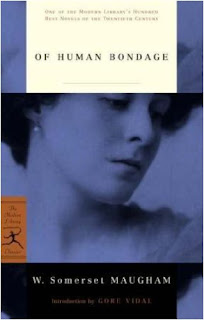I recently wrote an unintentionally provocative piece about bloggers and bookstore affiliates. Is it conflict of interest? Do bloggers compromise their standards when they sign up to sell books as Amazon or B&N affiliates ? A blogger writes about a book. An image appears in the post, or in a sidebar on a blog, and if you click on the image you go right to Amazon, B&N, or another bookstore. Then if you buy the book, the blogger makes a little money. Bloggers visited my blog to say there was no conflict of interest.
Nobody but bloggers commented.
I DON'T KNOW WHAT THAT MEANS.
Corporations use bloggers to make money. Of course, bloggers can use corporations, too. According to one blogger, she makes pennies per book sold. According to another, she made about $200 a year. These two directly dealt with the issue and made no bones about it. I have to admit I do not sneer at $200 a year. I probably spend $1,000 a year on books.
Oh, it's tempting to sign up as an affiliate.
But if I want to sell books, for God's sake, I'll open an online co-op. The internet HAS compromised bloggers' ethics. It makes things too easy for us. It gives us a template: Suddenly we find ourselves filling in the Amazon Associate gadget on the Blogger draft page even if we have no intention of doing so. Honestly, it appears right here. I never asked for this to appear on my page. Blogger must have made a deal with Amazon. So click, click! When I had a blog on Wordpress, one day I went to my blog and found an ad for my city. It appeared without my permission. You can imagine how I felt.
Bloggers are not journalists. Far from it. They're not worried about journalistic ethics. Everybody is blogging, writing on Facebook, & Twitter: businesses (so many businesses), writers (so many writers), PR people (so many PR people), publishers (so many publishers), book lovers (professional and amateur), and who is who is who...well, we don't know. People have different motives for what they do.
So here are
1. If a blogger lists books received from a publisher and thanks the publisher, why? Reviewers are under no obligation to a publisher. They are doing the favor, not vice versa, and might as well sort out the books first and review the good ones or bad ones. My husband and I think some of these people are naive and are "bragging." Some may be quite cynical.
2. If a blogger constantly thanks a publisher for sending a book and then gushes about it, it is a heads-up. I'M JUST SAYING...
3. My note of sympathy: It IS difficult NOT to feel obligated to publicists who send you free books. If a publicist seeks you out when you are not a professional reviewer, you feel good. But after awhile it gets old. You look at the packages with dismay if the books are not your kind of thing. It isn't necessary to say, Look, I got a free book, and then to say you like it if you don't. It's heart-rending to stay silent, but sometimes you must. The publishers will keep sending them to you anyway because they appreciate your "selling" the books you like.
4. Why DOESN'T Persephone Books make bloggers affiliates?...[I deleted most of this paragraph to pacify the crazies.]
My husband notices these discrepancies and thinks there is something deeply wrong in the world of book blogging. He prefers amateur sports blogs, where they share information about races, weather conditions, etc.




































